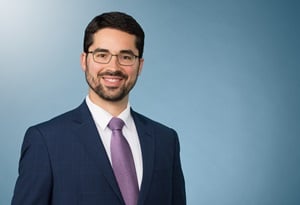Supreme Court Decides McDonnell v. United States
On June 27, 2016, the Supreme Court of the United States decided McDonnell v. United States, No. 15-474, holding that under the Hobbs Act and federal honest services fraud statute, the “official act” that is exchanged for goods and services must involve use of the formal levers of government power. Merely setting up meetings, talking to other officials, or organizing events fail to satisfy the definition of an “official act.”
The government charged former Virginia Governor Robert McDonnell and his wife Maureen McDonnell with honest services fraud and Hobbs Act extortion related to their acceptance of $175,000 in loans, gifts, and other benefits from Virginia businessman Jonnie Williams. According to the evidence, while McDonnell was governor, Williams sought the governor’s assistance in obtaining from Virginia’s state universities research studies on anatabine, a substance from which Williams’ company developed a nutritional supplement. Williams also sought state agency grant money to study anatabine and coverage of his product by the State’s employee health insurance plan. Governor McDonnell arranged meetings for Williams with other Virginia officials, hosted events for Williams’ company at the governor’s mansion, and contacted other government officials to discuss the research studies. The jury convicted the McDonnells, the district court denied their post-trial motions, and the Fourth Circuit affirmed.
The Supreme Court vacated and remanded, holding that mere meetings, telephone calls, and event organizing could not constitute the “official act” required for conviction. The Court rejected the government’s broad reading of “official act,” holding that the statutory text, precedent, and constitutional concerns required a more bounded interpretation.
The Court concluded that the statutory language required that the “official act” to be tied to a “question, matter, cause, suit, proceeding or controversy” that “may at any time be pending” or “may by law be brought” before the government official, and that violation of the statute requires that the public official makes a decision or takes action on that “question, matter, cause, suit, proceeding or controversy” or agrees to do so. Here, the Court agreed that the issues of whether Virginia’s state universities would study Williams’ product, whether a state agency would study anatabine, and whether Virginia’s state employee health insurance plan would cover Williams’ product qualified as matters “pending” before a public official, but the Court concluded that merely setting up a meeting, hosting an event, or calling another official was not an “official act” relating to such a matter. The statute’s use of the terms “cause,” “suit,” “proceeding,” and “controversy” required a more formal exercise of governmental power, such as a decision or action on a pending matter.
The Court also commented that the government’s proposed expansive interpretation of “official act” raised significant constitutional issues. Public officials regularly arrange for meetings with constituents and contact other government officials in response to their concerns, and a broad reading would prompt government officials to wonder whether responding to commonplace requests for assistance from constituents would risk prosecution.
Given its narrow interpretation of the statute’s “official act” language, the Court declined to find the statutes unconstitutionally vague. The Court remanded to the Fourth Circuit to consider the McDonnell’s argument that the evidence at trial was insufficient to convict them under the Court’s definition of “official acts.”
Chief Justice Roberts delivered the unanimous opinion of the Court.
The material contained in this communication is informational, general in nature and does not constitute legal advice. The material contained in this communication should not be relied upon or used without consulting a lawyer to consider your specific circumstances. This communication was published on the date specified and may not include any changes in the topics, laws, rules or regulations covered. Receipt of this communication does not establish an attorney-client relationship. In some jurisdictions, this communication may be considered attorney advertising.



